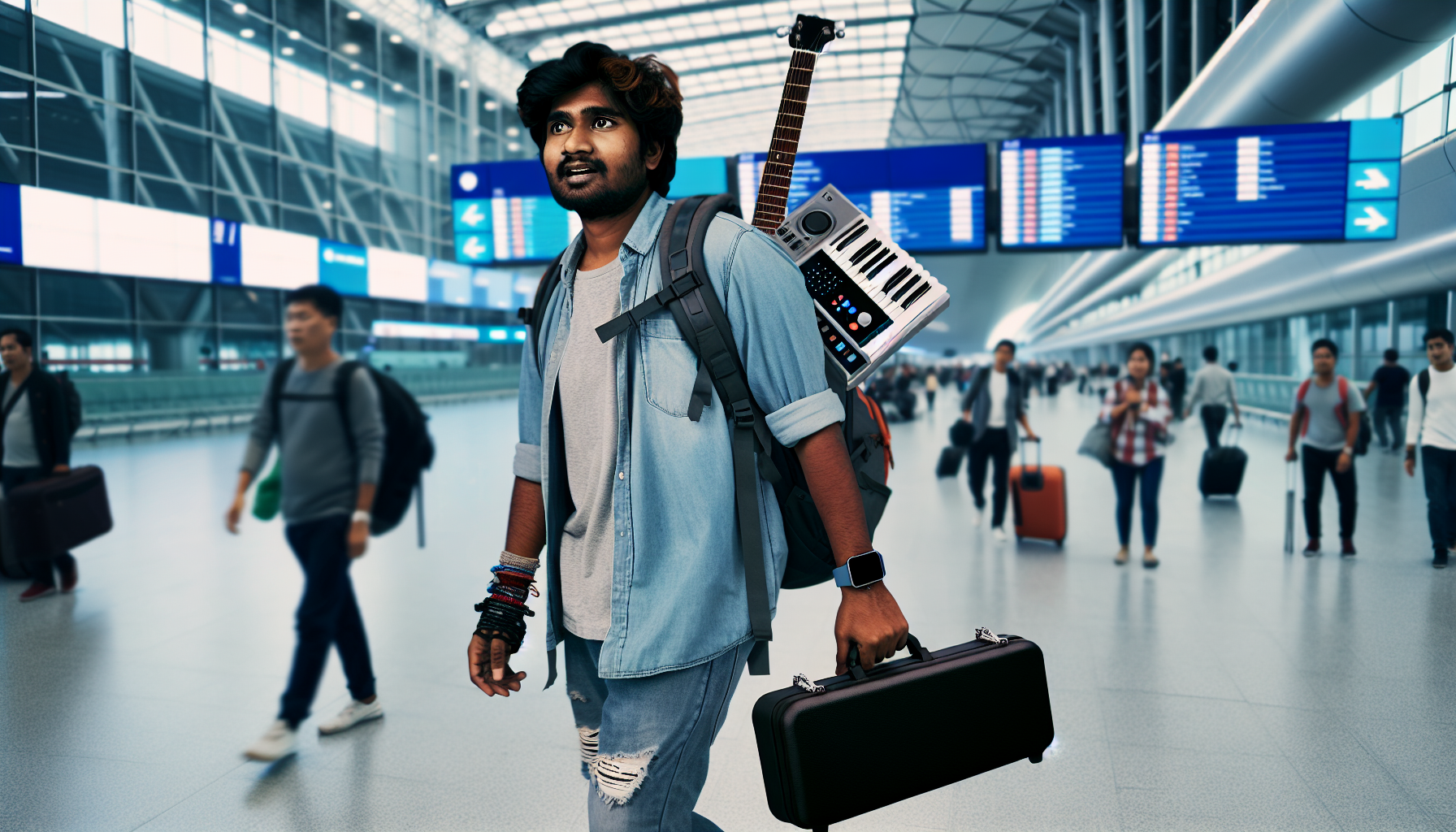Ever thought about merging your love for travel and music? As a digital nomad, managing these two passions might seem challenging, but it’s also incredibly rewarding! Traveling with musical instruments isn’t just about carrying extra luggage—it’s about keeping a part of your soul with you as you explore the world. Whether you’re wandering through ancient cities or lounging on exotic beaches, your instrument can be a source of joy and creativity.
Key Takeaways:
- Prioritize your instrument’s protection with the right case.
- Book flights strategically to accommodate your instrument.
- Navigate international travel restrictions and customs effectively.
- Accommodate your musical practice within your digital nomad lifestyle.
- Utilize technology to assist with music creation and practice on the road.
Choose the Right Case
When it comes to traveling with musical instruments, protecting them should be your top priority. Investing in a high-quality case is non-negotiable. Hard-shell cases with ample padding can save your instrument from the inevitable bumps and jolts of travel.
Carla Martin, a professional cellist and travel enthusiast, says, “A sturdy case is a musician’s best friend. Especially when you’re constantly on the move, it’s worth every penny you invest in it.”
Mindful Flight Booking
Booking flights with your instrument in tow requires a bit of foresight. Smaller instruments like violins or flutes are often allowed as carry-ons, but bigger ones like guitars might need a different approach. Some airlines even offer seats for large instruments!
Navigating Customs and Regulations
Customs regulations can vary greatly from one country to another. Make sure to check the local laws concerning musical instruments, especially if they’re made from rare materials. Also, carry proof of ownership to avoid any complications.
James Selby, a travel agent with a passion for helping musicians, recommends, “Always have your paperwork ready when crossing borders. It can save you a lot of time and hassle.”
Practice While Traveling
Maintaining your practice routine as a digital nomad can be tricky but not impossible. Look for accommodations that have quiet spaces or book co-working spaces where you can practice without disturbing others.
- Portable Recording Equipment: Invest in portable recording gear. Devices like the Zoom H4n Pro are compact and perfect for capturing high-quality sound on the go.
- Digital Tools: Use apps like Yousician or GarageBand to practice and create music digitally. These apps can be life-savers when you can’t play your instrument at the full volume.
Living or Experiential Tips
-
Seek Community: Join local music communities and online forums to stay inspired and connected. Websites like Meetup or Facebook groups can help you find jam sessions or music events in your destination.
-
Respect Local Norms: Research the cultural norms of your destination regarding music and noise levels. Being mindful will help you integrate more smoothly into your temporary habitat.
-
Insurance: Consider insuring your instrument. Travel insurance often covers gadgets but may not cover musical instruments unless specified.
Conclusion
Traveling with your musical instruments as a digital nomad is all about balance—between passion and practicality, spontaneity and planning. As you explore new horizons, keep your melodies close. Who knows? You might end up jamming on a mountaintop or performing on a pristine beach. Interested in diving deeper? Websites like The Nomad Musician and Practical Nomad Music Traveler offer a plethora of resources to guide you on this melodic journey.
Source Links:
FAQ:
Q1. Can I carry my guitar as a carry-on luggage on a flight?
- A: It depends on the airline’s policy. Some airlines allow guitars as carry-ons if they fit in the overhead compartment, while others might require you to book an extra seat for larger instruments.
Q2. How can I protect my instrument from damage during travel?
- A: Using a high-quality hard-shell case with ample padding is crucial. Additionally, consider insuring your instrument for added protection.
Q3. What should I do if my instrument contains restricted materials?
- A: Check the local laws of your travel destination regarding musical instruments made from restricted materials. Carry documentation or proof of ownership to avoid legal issues at customs.
